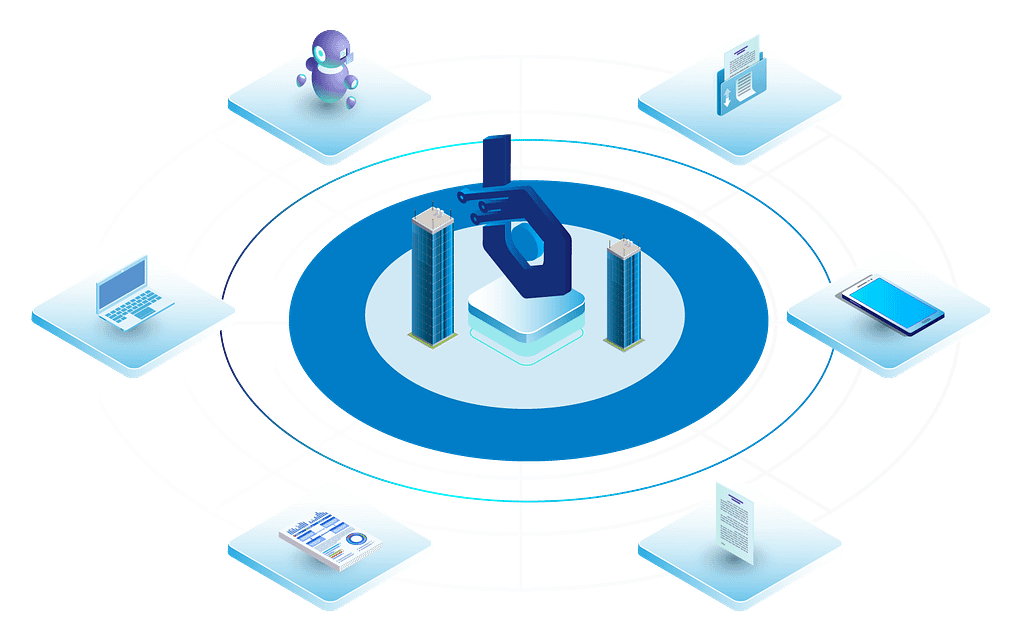Insurance is experiencing a wave of digital transformation. It is innovating and continuously improving the services it offers.
The good news is insurance automation software is built with today’s IT challenges in mind, helping you streamline processes and manual tasks and free up IT resources to concentrate on more strategic growth goals.
There will be an increase in demand for insurance automation software in a digital world to meet customer expectations, automate manual processes, stay ahead of the competition, cut costs and drive efficiency and change in work culture.
Many companies have changed their approach and adopted automation software to meet today’s requirements.
Gradually, fewer procedures require human involvement as automation becomes more widespread.
Read on to learn about the future of insurance automation software in a digital world.
Why Should Insurers Invest in Insurance Automation Software?
The evolution of the insurance industry is driven by adopting and leveraging automation.
Over the next few years, more than 75% of insurance companies plan to implement insurance automation to automate laborious, manual business processes and correct outdated methods.
As such, insurers are now aggressively looking to adopt intelligent automation powered by technologies like Artificial Intelligence, Machine Learning, and Robotic Process Automation.
It has been a game changer for various businesses, including the insurance sector.
Here is the reason why insurers should invest in insurance automation software.
1. Meet Customer Expectations
Insurance is traditionally an industry with low customer touch and slow tech adoption.
When a claimant submits an insurance claim, they usually do not get regular updates or notifications regarding the process.
They have to wait until the results, which can be frustrating for modern-day customers.

Customers of insurance are shaped by their interactions with other industries. They now expect on-demand, high-touch, and rapidly innovating services focused on user experience.
Consumers have come to expect a highly personalized, self-directed experience from insurers.
Leveraging insurance claim automation software can dramatically improve customer experience in insurance.
- It can help agencies offer regular customer updates and make claims processing automation more transparent.
- Clients can sign in to the portal to view the claim status and may also get notified through email or text messages.
- They can pay bills, view policies, and file claims; brokers can receive and process all information on their end under one system.
- It can be easier for customers to find and purchase insurance products online.
2. Automate Manual Processes
Did you know insurance automation can reduce manual work by 80%?
In the past, data collection and processing was a highly manual procedure consisting of repetitive tasks subject to considerable human errors.
Similarly, the paperwork has been making the process long and gradually leaving the insurance sector.
An increasing proportion of products, services, and procedures have switched from manual to automated processes as printed materials have been phased out.

Even though many records remain in print, more sophisticated document-processing tools have helped insurers automate paper-based processing to improve speed, immediacy, and quality.
A truly digital customer experience starts with products that are easy to understand and simple enough to purchase through digital with automated underwriting and direct issuance.
So transforming the way to collect customer data and signatures helps deliver the type of instant gratification consumers expect, and insurers can make the process more efficient and reduce regulatory risk in a digital economy.
3. Stay Ahead of the Competition
Competition is becoming tougher. Insurance companies need to focus narrowly on a portion of the value chain or leverage specific automation software to meet customer needs.
Customers have higher expectations and expect insurers to deliver a better customer experience.
Though still only a tiny share of the overall $5 trillion insurance market, new digital tools pose a potentially competitive challenge.
If you do not leverage automation, you will fall behind while old and new competitors advance into the age of automation by utilizing its efficiencies, shifting consumer tastes, and technology developments.

Moreover, startups have started using technology to reduce operational costs and help enhance the client’s user experience by improving convenience, transparency, timeliness, simplicity, personalization, and customer engagement.
- Insurance automation is an increasingly essential lever that insurance companies can use to create a competitive advantage, including pricing strategies, claim fraud mitigation, lead generation, and customer satisfaction.
- It increases a company’s ability to coordinate its activities locally, countrywide, and globally.
- Early adopters will be poised to get ahead of the competition and grow their market as well as their profits.
In order to succeed in this digital world, insurers must embrace change. That means being willing to experiment with new approaches and technologies.
And most importantly, they need to become more customer-centric and focus on delivering exceptional customer service. After all, it is the only thing that truly sets them apart from their competition.
4. Cut Costs and Drive Efficiency
Insurance firms manage large amounts of data. If human representatives are the only force used for processing these data, then this might take more time and money to get things done.
Insurance automation is the best solution to promote long-term success in a highly competitive marketplace.
According to McKinsey’s study, automation can reduce the cost of claims management in insurance by as much as 30%.

It is widely adopted by companies looking to increase their rates and automate time-consuming activities that will help them cut costs and drive the efficiency of their services.
Furthermore, administrative time can be saved by automating the migration of documents from one system to another, a process that would have been manual without automation software, saving them time and money.
Thus, insurers need to adopt claim automation software to increase their profits, enhance productivity, and efficiency, cut costs and drastically improve customer service.
5. Change in Work Culture
The pandemic has brought multiple challenges to the world. After the COVID pandemic, the work-from-home culture has been widely adopted by many companies.
According to a recent survey, the number of workers saying they will not return to the office full-time has increased significantly. Similarly, work-from-home accounts for over 60% of US economic activity.
Due to this, many organizations switching to digital and remote forms of work, collaboration, etc., became a sudden matter of business continuity and even survival.

In addition, with the advances in automation over the coming years, half of the activities conducted by workers can be impacted.
As a result, many insurers across the globe started using digital tools for purposes they never had before. They enable their employees to work remotely.
Even before the pandemic, manual procedures were no longer effective. However, in the post-pandemic world, there is no place for paper-based workflows requiring employees’ physical presence.
Conclusion
Automation is vital to the insurance industry that wants to adopt customer-friendly, digital-first initiatives.
In this rapidly changing world, the insurance industry is under pressure to keep up with the pace of change.
They have realized the importance of automation software to stay competent and profitable.
To achieve the winning edge in this digital world, leverage insurance automation software like Benekiva, the best claims automation software.
Implementing agile technologies helps insurance companies alter their needs which will help them rapidly, seamlessly, and effectively meet new challenges as they arise.







